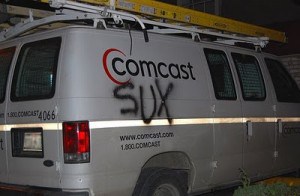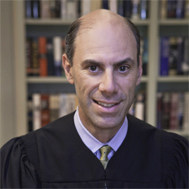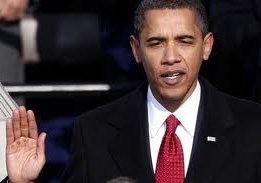 The inauguration of President Barack Obama for a second term in the White House is brought to you by generous financial contributions from AT&T, Microsoft, and a handful of big health care and pharmaceutical companies that all do business with the federal government.
The inauguration of President Barack Obama for a second term in the White House is brought to you by generous financial contributions from AT&T, Microsoft, and a handful of big health care and pharmaceutical companies that all do business with the federal government.
AT&T, which donated generously to the Romney campaign, has been making amends with the administration remaining in office by underwriting the lavish festivities, despite earlier promises from the Obama Administration not to accept corporate money for the inauguration.
The telecom giant is among seven corporations that have found their way around federal laws that bar contractors from spending money to influence elections. No law stops them from writing big checks for inaugural events or political conventions (see here, here, here, and here for our earlier reports).
 AT&T is among the most powerful special interests in Washington, with more than $14 million spent lobbying Congress and federal agencies like the FCC in just the first nine months of 2012, according to The Center for Responsive Politics’ website, Open Secrets.
AT&T is among the most powerful special interests in Washington, with more than $14 million spent lobbying Congress and federal agencies like the FCC in just the first nine months of 2012, according to The Center for Responsive Politics’ website, Open Secrets.
AT&T handed out nearly $2 million to political action committees, parties, and secretive independent groups that run campaign ads without disclosing who pays for them. Candidates did not suffer for money either. Direct AT&T contributions totaling $3,297,096 were handed to members and would-be members of Congress, with the company heavily favoring Republicans.
Among those winning AT&T checks valued at $10,000 or more were 65 Republicans and 16 Democrats:
| Romney, Mitt (R) |
Pres |
$211,914 |
| Obama, Barack (D) |
Pres |
$198,046 |
| Boehner, John (R-OH) |
House |
$160,350 |
| Leppert, Thomas C (R-TX) |
Senate |
$35,200 |
| McConnell, Mitch (R-KY) |
Senate |
$31,250 |
| Hoyer, Steny H (D-MD) |
House |
$20,650 |
| Paul, Ron (R-TX) |
House |
$17,152 |
| Dewhurst, David H (R-TX) |
Senate |
$14,750 |
| Amodei, Mark (R-NV) |
House |
$14,000 |
| Barrasso, John A (R-WY) |
Senate |
$14,000 |
| Perry, Rick (R) |
Pres |
$13,500 |
| Roskam, Peter (R-IL) |
House |
$13,250 |
| Barton, Joe (R-TX) |
House |
$12,700 |
| Denham, Jeff (R-CA) |
House |
$12,500 |
| Ros-Lehtinen, Ileana (R-FL) |
House |
$12,500 |
| Quayle, Ben (R-AZ) |
House |
$12,000 |
| Ryan, Paul (R-WI) |
House |
$12,000 |
| Cruz, Ted (R-TX) |
Senate |
$11,500 |
| Dingell, John D (D-MI) |
House |
$11,500 |
| Lance, Leonard (R-NJ) |
House |
$11,300 |
| Allen, George (R-VA) |
Senate |
$11,000 |
| Baca, Joe (D-CA) |
House |
$11,000 |
| Bachus, Spencer (R-AL) |
House |
$11,000 |
| Rogers, Mike (R-MI) |
House |
$11,000 |
| Snowe, Olympia (R-ME) |
Senate |
$11,000 |
| Walden, Greg (R-OR) |
House |
$11,000 |
| Barrow, John (D-GA) |
House |
$10,500 |
| Cantor, Eric (R-VA) |
House |
$10,500 |
| Blackburn, Marsha (R-TN) |
House |
$10,250 |
| Clyburn, James E (D-SC) |
House |
$10,250 |
| Gingrey, Phil (R-GA) |
House |
$10,250 |
| Griffin, Tim (R-AR) |
House |
$10,250 |
| Mack, Connie (R-FL) |
House |
$10,250 |
| Schock, Aaron (R-IL) |
House |
$10,250 |
| Aderholt, Robert B (R-AL) |
House |
$10,000 |
| Bass, Charles (R-NH) |
House |
$10,000 |
| Bilbray, Brian P (R-CA) |
House |
$10,000 |
| Bono Mack, Mary (R-CA) |
House |
$10,000 |
| Burgess, Michael (R-TX) |
House |
$10,000 |
| Butterfield, G K (D-NC) |
House |
$10,000 |
| Calvert, Ken (R-CA) |
House |
$10,000 |
| Camp, Dave (R-MI) |
House |
$10,000 |
| Carter, John (R-TX) |
House |
$10,000 |
| Christian-Christensen, Donna (D-VI) |
|
$10,000 |
| Clay, William L Jr (D-MO) |
House |
$10,000 |
| Crowley, Joseph (D-NY) |
House |
$10,000 |
| Diaz-Balart, Mario (R-FL) |
House |
$10,000 |
| Graves, Sam (R-MO) |
House |
$10,000 |
| Green, Gene (D-TX) |
House |
$10,000 |
| Hall, Ralph M (R-TX) |
House |
$10,000 |
| Heller, Dean (R-NV) |
Senate |
$10,000 |
| Hunter, Duncan D (R-CA) |
House |
$10,000 |
| Issa, Darrell (R-CA) |
House |
$10,000 |
| Jenkins, Lynn (R-KS) |
House |
$10,000 |
| Johnson, Eddie Bernice (D-TX) |
House |
$10,000 |
| Jordan, James D (R-OH) |
House |
$10,000 |
| King, Steven A (R-IA) |
House |
$10,000 |
| Kinzinger, Adam (R-IL) |
House |
$10,000 |
| Latham, Tom (R-IA) |
House |
$10,000 |
| Long, Billy (R-MO) |
House |
$10,000 |
| Lungren, Dan (R-CA) |
House |
$10,000 |
| McCarthy, Kevin (R-CA) |
House |
$10,000 |
| McMorris Rodgers, Cathy (R-WA) |
House |
$10,000 |
| Meeks, Gregory W (D-NY) |
House |
$10,000 |
| Murphy, Tim (R-PA) |
House |
$10,000 |
| Nugent, Richard (R-FL) |
House |
$10,000 |
| Nunes, Devin Gerald (R-CA) |
House |
$10,000 |
| Pitts, Joe (R-PA) |
House |
$10,000 |
| Pompeo, Mike (R-KS) |
House |
$10,000 |
| Rahall, Nick (D-WV) |
House |
$10,000 |
| Sanchez, Loretta (D-CA) |
House |
$10,000 |
| Scalise, Steve (R-LA) |
House |
$10,000 |
| Scott, David (D-GA) |
House |
$10,000 |
| Sessions, Pete (R-TX) |
House |
$10,000 |
| Shimkus, John M (R-IL) |
House |
$10,000 |
| Smith, Lamar (R-TX) |
House |
$10,000 |
| Sullivan, John (R-OK) |
House |
$10,000 |
| Terry, Lee (R-NE) |
House |
$10,000 |
| Upton, Fred (R-MI) |
House |
$10,000 |
| Whitfield, Ed (R-KY) |
House |
$10,000 |
But the Money Party doesn’t end there. At least 49 members of the House and Senate that vote on legislation that directly affects AT&T’s bottom line also happen to be shareholders of the company:
 Akin, Todd (R-MO)
Akin, Todd (R-MO)
Berkley, Shelley (D-NV)
Berman, Howard L (D-CA)
Bingaman, Jeff (D-NM)
Boehner, John (R-OH)
Bonner, Jo (R-AL)
Buchanan, Vernon (R-FL)
Burgess, Michael (R-TX)
Cassidy, Bill (R-LA)
Coats, Dan (R-IN)
Coble, Howard (R-NC)
Coburn, Tom (R-OK)
Cohen, Steve (D-TN)
Cole, Tom (R-OK)
Conaway, Mike (R-TX)
Conrad, Kent (D-ND)
Cooper, Jim (D-TN)
Doggett, Lloyd (D-TX)
Frelinghuysen, Rodney (R-NJ)
 Gibbs, Bob (R-OH)
Gibbs, Bob (R-OH)
Hagan, Kay R (D-NC)
Hanna, Richard (R-NY)
Hutchison, Kay Bailey (R-TX)
Inhofe, James M (R-OK)
Isakson, Johnny (R-GA)
Johnson, Ron (R-WI)
Keating, Bill (D-MA)
Kerry, John (D-MA)
Kingston, Jack (R-GA)
 Lance, Leonard (R-NJ)
Lance, Leonard (R-NJ)
Marchant, Kenny (R-TX)
McCarthy, Carolyn (D-NY)
McCaskill, Claire (D-MO)
McCaul, Michael (R-TX)
McKinley, David (R-WV)
Perlmutter, Edwin G (D-CO)
Peters, Gary (D-MI)
Renacci, Jim (R-OH)
Rogers, Hal (R-KY)
Sensenbrenner, F James Jr (R-WI)
Sessions, Pete (R-TX)
 Smith, Lamar (R-TX)
Smith, Lamar (R-TX)
Tipton, Scott (R-CO)
Upton, Fred (R-MI)
Vitter, David (R-LA)
Webb, James (D-VA)
Welch, Peter (D-VT)
Whitehouse, Sheldon (D-RI)
Whitfield, Ed (R-KY)
AT&T, which Open Secrets deems a “heavy hitter,” also benefits from Washington’s revolving door between public service and private sector lobbying. The group notes at least 63 out of 86 AT&T lobbyists have previously held government jobs, often at the agencies that oversee and regulate the company.
Public Citizen says it is disturbed by revelations companies like AT&T, Microsoft, and various pharmaceutical and health care interests like Centene and Genentech-Roche Pharmaceuticals have been allowed to contribute because all of them are in business with the federal government. AT&T has been awarded more than $101 million in federal contracts this fiscal year. Microsoft, which spent $5.7 million lobbying Washington has earned most of that back with $4.6 million in contracts with the Department of Homeland Security, the White House, and other federal agencies.
Almost none of the companies contacted by USA Today were willing to return calls or comment on the contributions. But Public Citizen did go on the record with the newspaper.
“Such donations are more troubling when they come from companies that have significant ongoing business with the federal government,” said Robert Weissman, the group’s president. “They will expect a very good hearing regarding any concerns, complaints or aspirations they might have.”
 Frontier Communications has admitted in a December regulatory filing it lost a combined 60 percent of its residential and business landline customers in Washington over the last decade, with more than 15,000 more departing during the first nine months of 2012.
Frontier Communications has admitted in a December regulatory filing it lost a combined 60 percent of its residential and business landline customers in Washington over the last decade, with more than 15,000 more departing during the first nine months of 2012.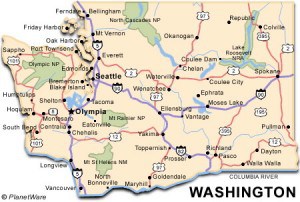 Frontier claims it faces robust competition in Washington and should be entitled to deregulation.
Frontier claims it faces robust competition in Washington and should be entitled to deregulation.

 Subscribe
Subscribe The inauguration of President Barack Obama for a second term in the White House is brought to you by generous financial contributions from AT&T, Microsoft, and a handful of big health care and pharmaceutical companies that all do business with the federal government.
The inauguration of President Barack Obama for a second term in the White House is brought to you by generous financial contributions from AT&T, Microsoft, and a handful of big health care and pharmaceutical companies that all do business with the federal government. AT&T is among the most powerful special interests in Washington, with more than $14 million spent lobbying Congress and federal agencies like the FCC in just the first nine months of 2012, according to The Center for Responsive Politics’ website,
AT&T is among the most powerful special interests in Washington, with more than $14 million spent lobbying Congress and federal agencies like the FCC in just the first nine months of 2012, according to The Center for Responsive Politics’ website,  Akin, Todd (R-MO)
Akin, Todd (R-MO) Gibbs, Bob (R-OH)
Gibbs, Bob (R-OH) Lance, Leonard (R-NJ)
Lance, Leonard (R-NJ) Smith, Lamar (R-TX)
Smith, Lamar (R-TX)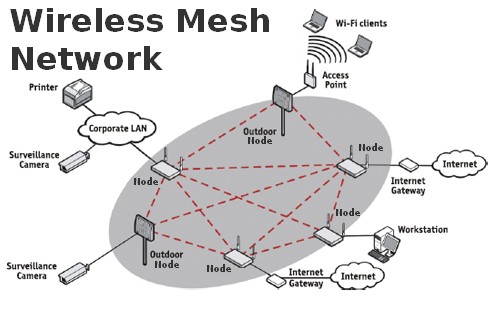 The business community of Poulsbo, Wash., a Seattle suburb of 9,000 in Kitsap County, is fed up waiting around for CenturyLink and Comcast to increase broadband speeds in the area so several have joined forces to share the city’s underused, existing fiber-optic cables to offer free Internet access for area businesses and residential users.
The business community of Poulsbo, Wash., a Seattle suburb of 9,000 in Kitsap County, is fed up waiting around for CenturyLink and Comcast to increase broadband speeds in the area so several have joined forces to share the city’s underused, existing fiber-optic cables to offer free Internet access for area businesses and residential users.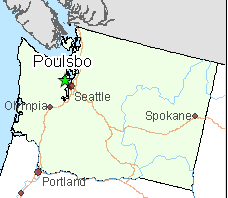 Stephen Perry, the PUD’s superintendent of telecommunications, says the new network is a pilot program to test if an economic model can be created to sustain the service and eventually expand it.
Stephen Perry, the PUD’s superintendent of telecommunications, says the new network is a pilot program to test if an economic model can be created to sustain the service and eventually expand it.